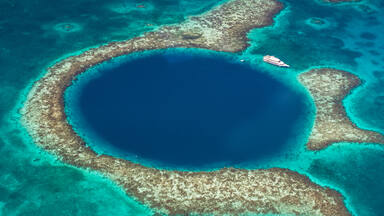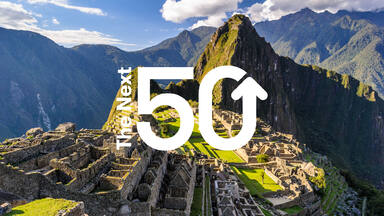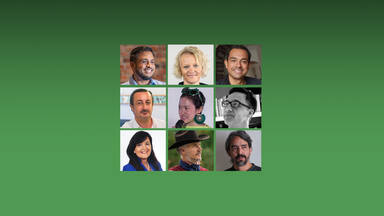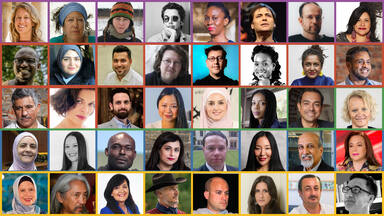Gabriel Zuchtriegel
Archaeologist and Director of the Archaeological Park of Pompeii
Doris Maria Woerfel
Founding Director of the African Sustainable Tourism and former Executive Managing Director and Councillor of the African Tourism Council
Vision for the Next 50
In the Next 50… Tourism creates real encounters with heritage and local communities around the site. This ‘slow cultural tourism’ model involves community members to make a tourism destination a space with activities to engage international visitors.
In the Next 50… African communities are capable of driving heritage tourism to strengthen their economic and social resilience and of contextualizing their cultural ceremonies and performances on-site.
Summary
The dialogue between Gabriel Zuchtriegel and Doris Maria Woerfel centred on the engagement of the local community in tourism. They agreed that involving local communities is fundamental to sustainable tourism because they are the main actors who can diversify and contextualize cultural activities and offers on-site.
As Pompeii’s director, Zuchtriegel expressed his passion for ‘slow cultural tourism’ where visitors encounter local communities and fully enjoy the site free from time constraints. He believes heritage sites should not be reserved for global tourists but serve as social spaces where community members create an emotional bond and work with all stakeholders. Woerfel shared her own experience of creating inspiring cultural heritage tourism practices in Africa, based on multidisciplinary cooperation and the production of digital data.
Dialogue
Watch the dialogue
Explore other sessions
Five dialogue sessions covering five themes take place in 2022, each joined by thinkers in paired dialogue from diverse regions. The interdisciplinary dialogues inspire new visions for the next 50 years of World Heritage.



